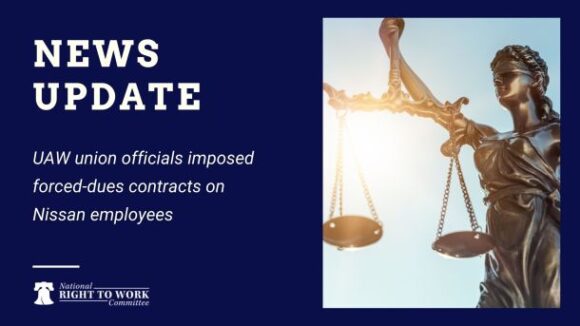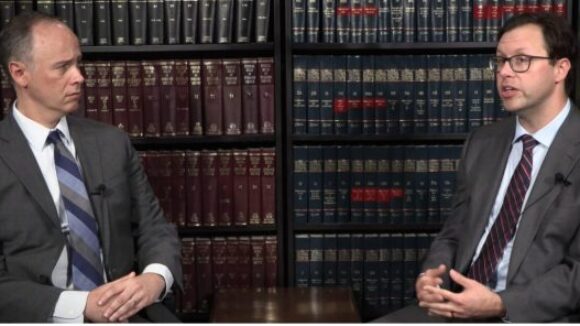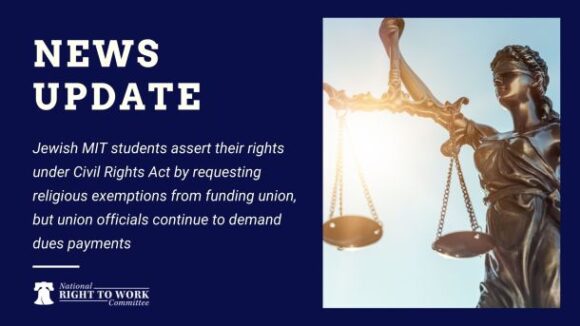Somerset, NJ, Nissan Parts Distribution Center Employees File Petition for Vote to Kick Out UAW Union
UAW union officials imposed forced-dues contracts on Nissan employees

National Right to Work Legal Defense Foundations case-related post:
Case pending at Labor Board for more than five years also challenges union bosses’ failure to adequately disclose how they spend compulsory union fees
Washington, DC (January 2, 2019) – Today, National Right to Work Foundation staff attorneys have filed a petition seeking an order that the National Labor Relations Board (NLRB) take action on a nine-year-old case that has been awaiting a decision for more than five years. The case was brought by nurse Jeanette Geary after union officials kept her and her colleagues in the dark about how their forced union fees are spent.
Foundation staff attorneys filed the mandamus petition at the U.S. Court of Appeals for the District of Columbia Circuit seeking a court order that the NLRB promptly decide Geary’s case. The Board had issued a decision in 2012, but after the U.S. Supreme Court ruled that President Obama had violated the Constitution by making three illegal recess appointments to the Board, that decision and many others were invalidated. Of those invalidated, Geary’s case is among a few cases, if not the only one, still pending without a decision.
Geary, then a nurse at Kent Hospital in Warwick, Rhode Island, filed an unfair labor practice charge in 2009 with free legal aid from Foundation staff attorneys. Her charge stated that United Nurses and Allied Professionals (UNAP) union officials unlawfully spent her forced union fees and failed to meet financial disclosure requirements as to the amount of the compulsory fees required as a condition of employment.
Geary and other nurses informed UNAP union officials that they were exercising their right to refrain from formal union membership and from the payment of “non-chargeable” fees for activities unrelated to union bargaining, including politics, lobbying and member-only events.
UNAP union officials failed to provide Geary and other nonmember nurses with a disclosure of the part of union fees the workers are forced to pay, claiming Geary could be charged for union lobbying activities. According to the charge, union bosses failed to provide any evidence of an independent audit “beyond a mere assertion.” Moreover, union officials provided no breakdown of expenditures from a so-called “Defense Fund” despite claiming they included chargeable expenses.
In the Foundation-won Supreme Court Beck decision, the Court held that private-sector employees can only be forced to pay, as a condition of employment, union dues related to specific union activity. Additionally, union officials must provide employees with an independently verified breakdown of union expenditures showing how much objecting employees must pay to keep their jobs.
In 2012, President Obama’s illegally-appointed NLRB rejected Supreme Court precedent and granted union bosses power to charge nonmember workers for union political lobbying, including lobbying in other states. However, that decision was invalidated by the Court’s holding in NLRB v. Noel Canning that the Board lacked a valid quorum because of three unconstitutional “recess appointments” President Obama made.
“UNAP union bosses should be held accountable for their blatant refusal to respect the rights of the workers they claim to represent,” said National Right to Work Foundation President Mark Mix. “Justice delayed is justice denied, and it’s long past time the NLRB issues a decision that affirms workers’ protections from union boss coercion.”F
https://www.nrtw.org/news/nlrb-geary01022019/
The National Right to Work Legal Defense Foundation is a nonprofit, charitable organization providing free legal aid to employees whose human or civil rights have been violated by compulsory unionism abuses. The Foundation, which can be contacted toll-free at 1-800-336-3600, assists thousands of employees in more than 250 cases nationwide per year.

UAW union officials imposed forced-dues contracts on Nissan employees

A new federal lawsuit from a National Right to Work Foundation-backed Starbucks employee, currently pending at the D.C. District Court, could upend the federal agency and result in a ruling that the current Labor Board’s structure violates the Constitution.

Jewish MIT students assert their rights under Civil Rights Act by requesting religious exemptions from funding union, but union officials continue to demand dues payments